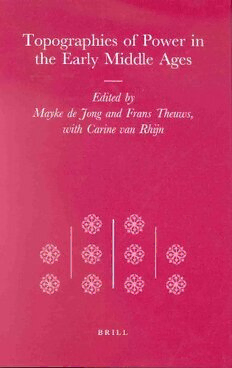
Topographies of Power in the Early Middle Ages (Transformation of the Roman World) PDF
620 Pages·2001·4.269 MB·English
Most books are stored in the elastic cloud where traffic is expensive. For this reason, we have a limit on daily download.
Preview Topographies of Power in the Early Middle Ages (Transformation of the Roman World)
Description:
The 19 papers presented in this volume by North American and European historians and archaeologists discuss how early medieval political and religious elites constructed "places of power", and how such places, in turn, created powerful people. They also examine how the "high-level" power exercized by elites was transformed in the post-Roman kingdoms of Europe, as Roman cities gave way as central stages for rituals of power to a multitude of places and spaces where political and religious power were represented. Although the Frankish kingdoms receive a large share of attention, contributions also focus on the changing topography of power in the old centres of the Roman world, Rome and Constantinople, to what "centres of power" may have meant in the steppes of Inner Asia, Scandinavia or the lower Vistula, where political power was even more mobile and decentralized than in the post-Roman kingdoms, as well as to monasteries and their integration into early medieval topographies of power.
See more
The list of books you might like
Most books are stored in the elastic cloud where traffic is expensive. For this reason, we have a limit on daily download.
